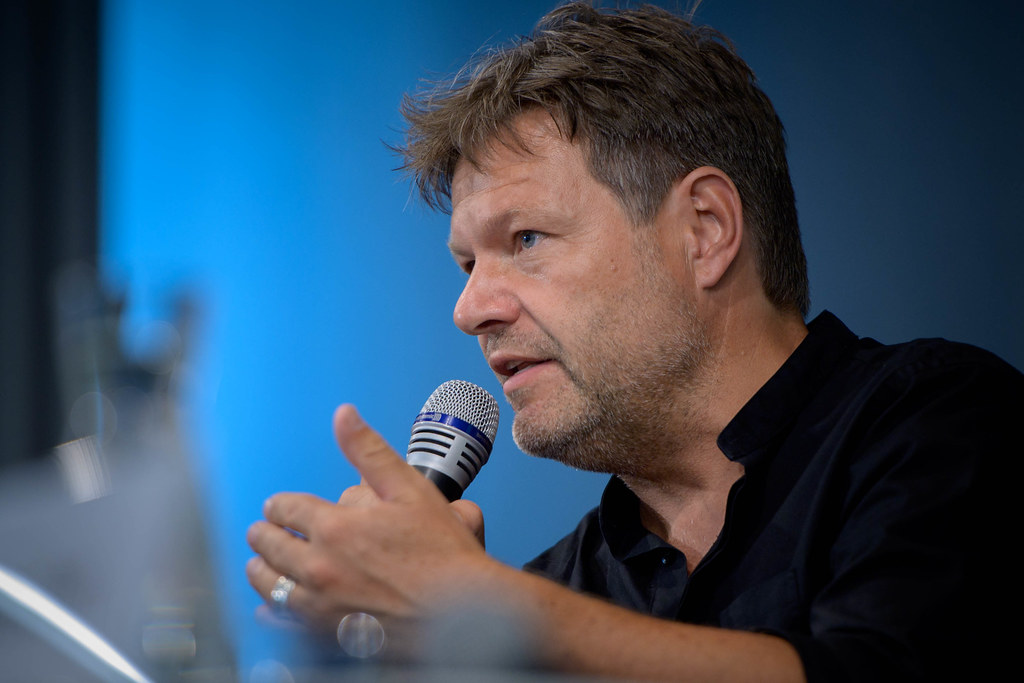Because German industry fears running out of cheap gas

German industrialists had relied on Minister Habeck, who was considered a pragmatist. But the war between Russia and Ukraine has changed many things and now Germany fears running out of cheap gas. The article by Pierluigi Mennitti from Berlin
These are troubled times for German industry on the energy front. The relationship with Economy Minister Robert Habeck, the green “philologist” in whose pragmatism the entrepreneurs had placed the auspices of a sustainable green industrial revolution, also for their own businesses, has been creaking for some time now. The war in Ukraine has upended plans and tore up the lifeline of cheap Russian gas. And the troubles began.
HABECK'S GAS ALARM
The latest alarm launched by the minister again involves businesses and concerns the risk – considered highly probable by some analysts – that the contract for the transit of Russian gas in central Europe through Ukraine will not be renewed at its natural expiry of 2024. If this will not happen, Germany could be forced to reduce or even stop industrial capacities, Habeck said speaking at the Economic Forum on East Germany which took place in Brandenburg.
“From my point of view, the energy crisis is not over yet”, explained the minister, “the current positive situation must not distract from what is actually threatening. I just want to underline that the transit agreements that Russia has concluded with Ukraine expire in 2024, the war is raging and there is no certain scenario as to how things will go.
Any interruption to Russian supplies would involve Germany in the second line. But it would fully invest in countries such as Austria, Hungary and Slovakia, still supplied by Russian gas today and who don't know how they could continue to support their energy needs if this flow were to stop.
“If Russian gas does not arrive in Eastern and Central Europe in the quantity it is still arriving through Ukraine, what was agreed at the European level would apply”, confirmed Habeck, “that is, that before citizens can end up in the cold, we should curb or even shut down our industry.” Solidarity agreements between EU countries impose the obligation to transfer to neighbors minimum quantities capable of supplying heating to private homes and strategic institutions, such as hospitals. If part of the energy accumulated in German plants has to be transferred to Austria or Hungary, Berlin will have to trigger a reduction plan for its industry.
WHAT THEY SAY ABOUT THE RUSSIAN-UKRAINIAN AGREEMENT
Germany therefore falters – like other countries of the so-called Western Front – when moving from firm declarations of principle to reality: European dependence on Russian supplies is an ongoing process, but it needs its time and a failure to renew the Russian agreement -Ukrainian could plunge the entire continent back into an emergency situation like last year's.
Furthermore, there are those in Austria who are sure that Ukraine will not renew the agreement. Gerhard Roiss, former president of the OMV energy group and recently engaged in the elaboration of a government plan to achieve independence from Russian energy supplies, had warned in an interview with public television Orf that Austria must prepare for the interruption of the passage of Russian gas through Ukraine after 2024.
The manager had mentioned the interview with a Ukrainian deputy energy minister from whom he had obtained the indiscretion that the contract will not be extended.
The Kyiv Energy Ministry responded closely and officially to his statements, denying the news. "The ministry is not aware of any decision to stop the transportation of natural gas from Russia through Ukraine to the West after the expiration of the contract with Russia at the end of 2024," the statement released through the news agency. Austrian press Apa, “Ukraine fulfills its obligations and is a reliable partner of EU states. European traders can freely order transportation capacity in the Ukrainian gas transportation system.”
But it is a denial that has failed to reassure almost anyone. According to a recently released report by the Center on Global Energy Policy , even if some supplies continue to transit beyond 2024, it is unlikely that this will happen under conditions comparable to the current ones, because of a lack of political support. "Direct negotiations between Ukraine and Russia on extending the transit contract seem highly unlikely in the current context," said the report's authors, Anne-Sophie Corbeau and Tatiana Mitrova.
Therefore, Habeck's alarm is much more concrete than one thinks and could be a useful clue for understanding in which directions the Berlin government will move on this front.
This is a machine translation from Italian language of a post published on Start Magazine at the URL https://www.startmag.it/energia/germania-industria-gas-habeck/ on Tue, 13 Jun 2023 09:08:39 +0000.
